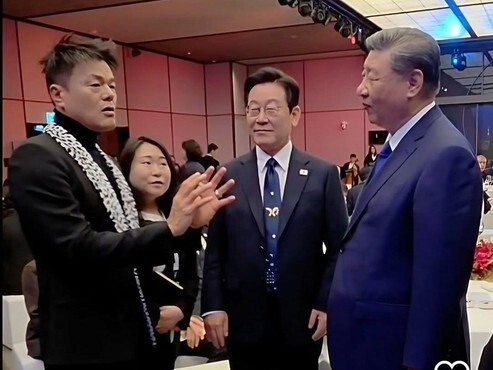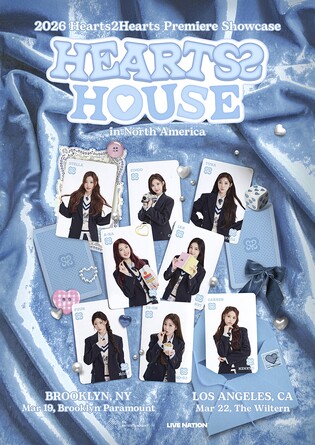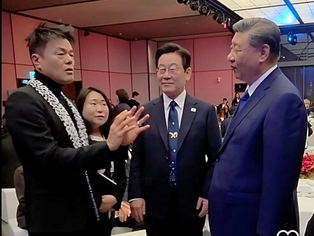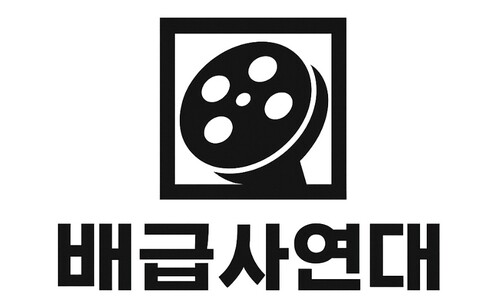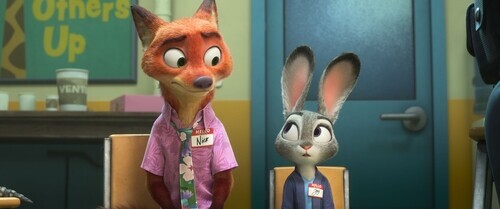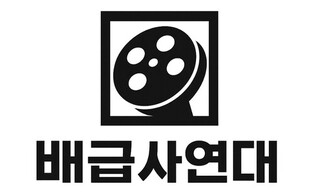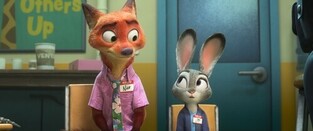 |
| ▲ A scene from "KPop Demon Hunters" is seen in this image provided by Netflix. (PHOTO NOT FOR SALE) (Yonhap) |
SEOUL, Sept. 4 (Yonhap) -- Animated feature "K-pop Demon Hunters" has climbed to the top of Netflix’s all-time rankings, overtaking "Squid Game" as the platform’s biggest hit.
The shift draws attention as both titles place Korean culture at their core. While K-content was once defined strictly by Korean production crews and actors, the scope has now expanded to works that effectively weave in elements of Korean culture.
Until now, "Squid Game season 1" had been Netflix’s undisputed No. 1. Directed by Hwang Dong-hyuk and produced by Korean studio Siren Pictures, the series was shot almost entirely in Korean with settings rooted in Korea, except for brief scenes involving foreign VIP characters.
 |
| ▲ A captured image of "Squid Game" from Netflix (PHOTO NOT FOR SALE) (Yonhap) |
K-pop Demon Hunters, by contrast, was produced by U.S. studio Sony Pictures Animation and co-directed by Korean Canadian Maggie Kang and Chris Appelhans. Dialogue is mostly in English, with only limited Korean phrases in song lyrics to highlight its K-pop concept.
Still, the two share a crucial commonality: Korean culture permeates both stories. Squid Game featured childhood games like “Red Light, Green Light,” marbles and dalgona candy, while K-pop Demon Hunters depicts girl group Huntrix enjoying instant noodles and gimbap, visiting a Korean herbal clinic and relaxing at a public bathhouse.
Critics say the definition of K-content is broadening. Film critic Yoon Sung-eun noted, “The production process of K-pop Demon Hunters and Squid Game is very different, but both works can be viewed in the same context because of their Korean elements.”
The latest record is notable as K-pop Demon Hunters achieved it four years after the pandemic-driven streaming boom. Previous chart-toppers like Red Notice and Squid Game both debuted in 2021, when global lockdowns drove exceptionally high OTT viewership. Despite being released in a post-pandemic environment with more outdoor activities, the new title surpassed them.
Targeting children — who often rewatch content — while delivering a universal story, the animation quickly gained traction. U.S. magazine Time wrote, “The success of K-pop Demon Hunters was driven by kids … a rare crossover hit that ranked in the Netflix top 10 in more than 90 countries.”
Its original soundtrack also fueled its popularity. Songs such as “Golden” and “Soda Pop” gained global traction, with “Golden” topping the Billboard Hot 100 for three weeks. “Your Idol” (No. 4), “Soda Pop” (No. 5) and “How It’s Done” (No. 9) also entered the chart’s top 10.
Producer Ian Asen Dres told Billboard, “Some fans first fell in love with the movie, which boosted the songs, while others discovered the songs first, which in turn brought them to the movie,” describing a virtuous cycle between the film and its soundtrack.
(C) Yonhap News Agency. All Rights Reserved


















![[풀영상] 디즈니+ '메이드 인 코리아' 제작발표회|현빈 Hyunbin·정우성 Jung Woosung·우도환·서은수·원지안·정성일·강길우·노재원·박용우|Made In Korea](/news/data/20251215/p179554206856695_165_h.jpg)




![[가요소식] 하츠투하츠 내년 3월 북미 쇼케이스 개최](/news/data/20251216/yna1065624915956235_448_h2.jpg)
![[가요소식] 군 복무 마친 NCT 태용, 내달 단독 콘서트](/news/data/20251216/yna1065624915956223_957_h2.jpg)
